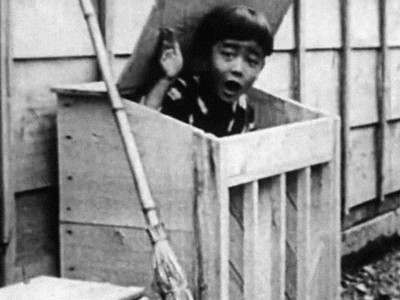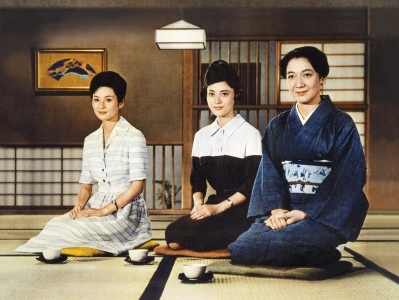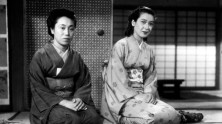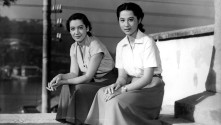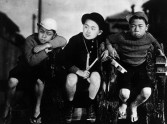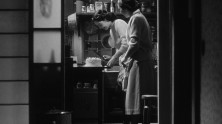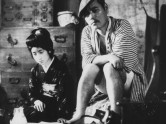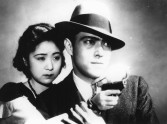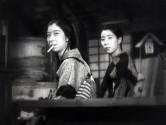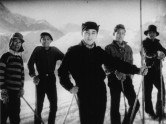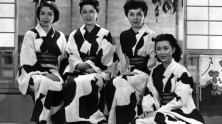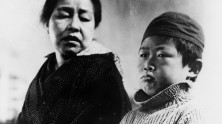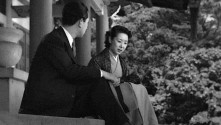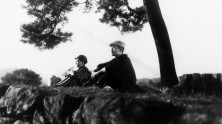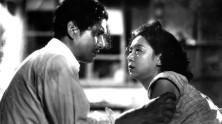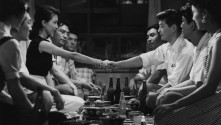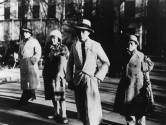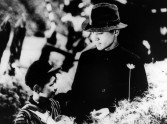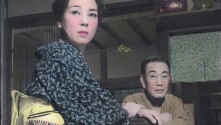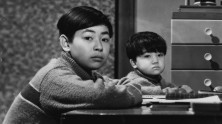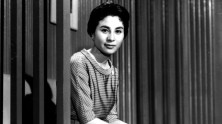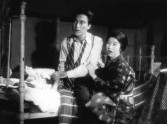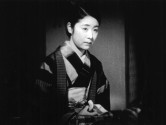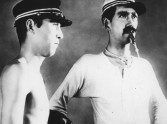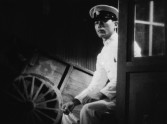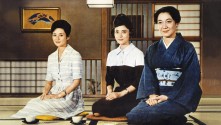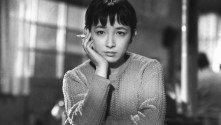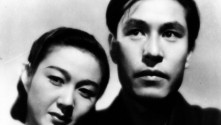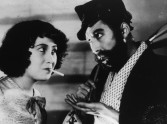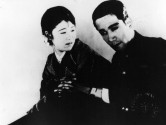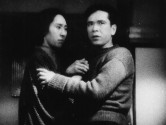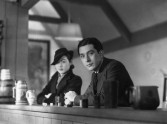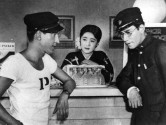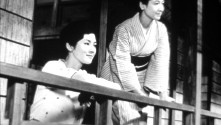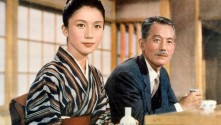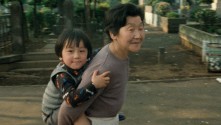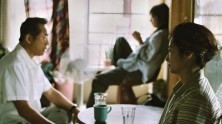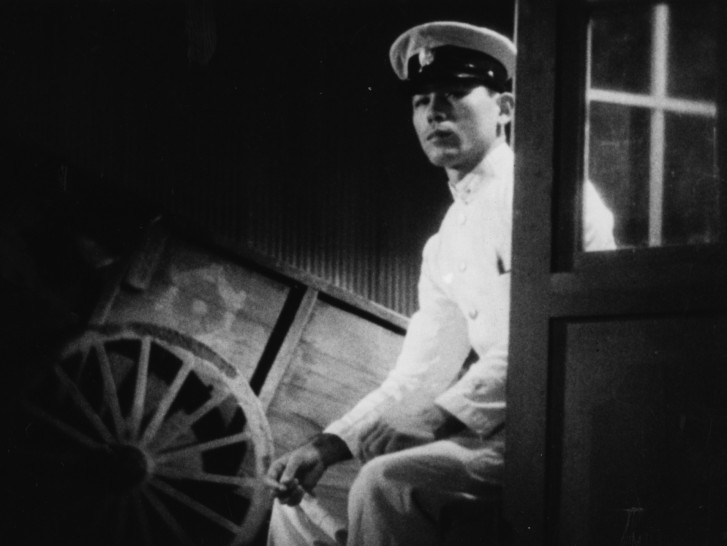
An Inn in Tokyo
(Tokyo no yado)
Screening on Film
With Sakamoto Takeshi, Okada Yoshiko, Iida Choko.
Japan, 1935, 35mm, black & white, silent, 80 min.
Japanese intertitles with English subtitles.
Print source: Janus Films
Ozu’s final silent and the last to feature the recurring character Kihachi as a protagonist, An Inn in Tokyo stars Sakamoto Takeshi as an unemployed father whose two sons join him as he wanders from one factory to another in search of a job. In their father’s absence, Zenko and Masako (Tokkan Kozou and Suematsu Takayuki) catch stray dogs for coins; unlike the boys in I Was Born, But …, the two are fully aware of their lot in life. At night Kihachi and his sons sleep in cheap inns. The three form a fortuitous bond with Otaka, an unemployed mother (Okada Yoshiko), and her daughter Kimiko (Ojima Kazuko). An Inn in Tokyo has drawn many comparisons to Italian neorealist cinema, as its subjects are similarly bound to dead time. Ozu’s observant details about the temporal effects of poverty have influenced films like Pedro Costa’s In Vanda’s Room (2000) and Tsai Ming-liang’s Stray Dogs (2013). Ozu stated that Shochiku made him direct An Inn in Tokyo as if it were a sound film, against his reluctance to make talkies. Despite this request for change, An Inn in Tokyo proves that the silent years were integral for Ozu’s development of a singular style: the film’s low-angled and angular compositions, shots of cloudless skies and empty alleys, and graceful juxtapositions of flatness and depth, are the hard-earned achievements of a punctilious practice.
NB: Just before going to press a 16mm print of A Straightforward Boy was discovered in Japan with additional footage. Although it may not be possible, we will make every effort to screen this version.
Shot in three days and originally spanning forty minutes, the silent comedy A Straightforward Boy is based on the popular short story “The Ransom of Red Chief” by O. Henry. In Ozu’s adaptation, a mustachioed kidnapper (Saito Tatsuo) snatches the titular boy (Aoki Tomio) by luring him with candy and toys. With frightening calm, the blank-faced boy unleashes an arsenal of tricks, gags and funny faces, pestering the kidnapper to such a degree that he is eventually returned. A Straightforward Boy shows the knack for nonsensical humor Ozu developed while working as an assistant director under Okubo Tadamoto, crafting loosely connected and absurd gags out of the slightest plots. The film’s suggestion that the boy’s silliness is a sign of his resilience will become a key component in Ozu’s characterization of children. For his performance as the boy, Aoki Tomio garnered so much acclaim that he subsequently took on the film’s Japanese title (“Tokkan Kozou,” or “a boy who charges into you”) as his stage name.
